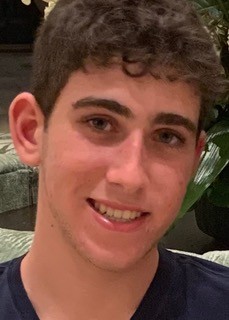Keep Yourself in Mind: Mental Health in College

College season is upon us. Students on the East End and beyond packed their backpacks and started the fall semester and the new school year. While exciting, the transition can be stressful — especially for first-year students.
That stress can fuel some common mental health challenges such as anxiety, obsessive-compulsive disorder and imposter syndrome. But, with help, all three are perfectly manageable without distracting from succeeding in a student’s studies.
Imposter syndrome, a condition in which a person doubts their abilities, isn’t an official diagnosis in the Diagnostic and Statistical Manual of Mental Disorders — the standard that psychologists use — but it is among the most prevalent behavioral challenges college students experience. According to a 2019 study by Brigham Young University, approximately 20% of college students experience imposter syndrome. Feelings of inadequacy are especially prevalent among students at elite universities, many of whom come from high schools in which they were at the top of their class academically.
“You just feel like everyone’s so smart here … Sometimes I just wonder whether I really belong,” said one rising junior at Duke University.
“It (imposter syndrome) is really demoralizing,” added an incoming sophomore at Hofstra University in Hempstead. “When I’m hanging out with my friends, I can’t help but consider whether they really want me here.”
To incoming and returning college students: There is good news, as there are ways to conquer imposter syndrome.
“Many people seek help from a mental health expert. It’s also helpful to reaffirm your achievements,” said Lisa A., a psychologist in Virginia. “It’s difficult, mentally, for these college students. It’s important that going in, they know their worth.”
The most common and sweeping mental illness affecting college students is anxiety, with 41% of students reporting symptoms, according to a recent study by the Association for University and College Counseling Center Directors. A certain level of anxiety is healthy and natural, especially for young adults. However, many college students report overwhelming feelings of anxiety, regarding both their academics and social lives. Of 10 U.S. undergraduate students from a wide range of schools whom we interviewed, eight responded that they had been diagnosed with anxiety by a mental health professional.
“There’s just so much to worry about,” said a rising senior at Hunter College who is interested in finance but has had difficulty in securing internships with Wall Street firms. “It’s not only the present, but also the future. The job market is just so competitive.”
Another student, a rising sophomore at Emory University, reports experiencing FOMO, an acronym for “fear of missing out,” which experts say can trigger anxiety.
“I often feel like I’m missing out on some experience,” she said. “Even when I’m hanging out with friends, I think about where I am not.”
This student attributed her anxiety in large part to social media, which provides a platform, ubiquitous among college students, to flaunt the often-fabricated glamorous aspects of their lives.
“I know it’s not entirely real, but it still has an impact on my mental health,” she said. “My friends feel the same way.”
One way to overcome this trigger is to limit social media use. While it is impractical to call for college students to delete social media — it’s a primary method of communication for many — limiting screen time can reduce anxiety. Seeking help from a professional can also help minimize students’ anxiety.
Another mental health issue often found among college students is obsessive-compulsive disorder (OCD), a condition in which people have uncontrollable thoughts and behaviors that they feel obliged to do again and again. This condition often stems from extremely high expectations which college students place upon themselves. For instance, students who are well-prepared for an exam will review material again and again deep into the night, at a point where repetition may not even yield higher returns.
One incoming sophomore at the Wharton School of Business said that whenever she has an exam, she reviews the relevant material the morning of the exam, even though she typically is “extremely prepared” the previous night.
According to the Perelman School of Medicine, OCD typically begins in adolescence, and fluctuates in severity along with stressful events. Naturally, college is stressful, but it is possible to manage that stress effectively. There are specific methods to treat the severity of OCD, including medication and talking therapy. One rising junior at Arizona State University went to her school’s counseling services.
“They really helped me manage my OCD and overall anxiety,” she said.
Many colleges offer mental health support, which is a great resource to those struggling with their mental health.
Life in college is stressful. For first-year undergraduate students from the Hamptons and the North Fork, the transition to college can bring on myriad challenges. That’s why it’s so important to focus on and take care of yourself in your journey.
This is the first installment of “Teen Talk,” a new column focusing on youth issues that will appear periodically in Dan’s Papers.










